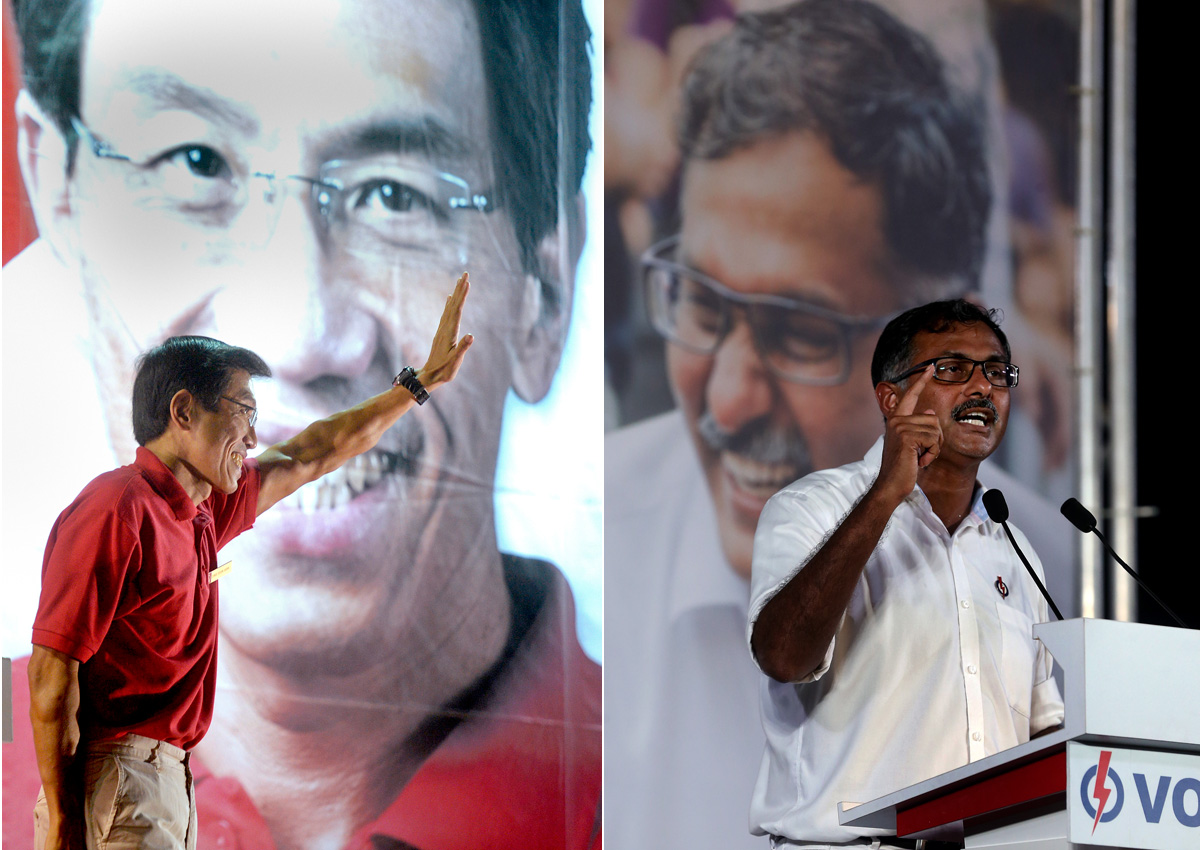Political watchers had expected the People’s Action Party (PAP) to see a drop in vote share at the Bukit Batok by-election.
But the swing of almost 12 percentage points against the ruling party – in just eight months since the last general election – caught some by surprise yesterday.
“It tells you that the residents are quite affected by the David Ong scandal,” said Dr Norshahril Saat of the Iseas-Yusof Ishak Institute.
He added that “the PAP can’t take its good results in the last general election for granted”.
PAP’s Mr Murali Pillai won 61.2 per cent of votes against his opponent, Singapore Democratic Party (SDP) chief Chee Soon Juan, who got 38.8 per cent of votes, his best showing since entering politics in 1992.
By comparison, former PAP MP David Ong polled 73 per cent in last year’s general election, when he was up against the SDP’s Mr Sadasivam Veriyah and independent candidate Samir Salim Neji. Mr Ong resigned from Parliament in March after allegations of an extramarital affair, triggering the by-election.
Dr Norshahril noted that the by-election result “is similar to the 2011 General Election, where the PAP had a 60-40 kind of margin”.
Observers noted that people tend to vote more freely in a by-election, as there is no worry that they may end up toppling the Government.
Institute of Policy Studies (IPS) deputy director for research Gillian Koh, who felt the PAP’s win was remarkable, said: “The opposition has a natural advantage.”
It is made worse for the PAP, as its MP had to resign over an extramarital affair, she said.
Mr Murali was also up against Dr Chee, one of the most well-known opposition politicians. Yet, the PAP won. “The PAP should have lost the seat, but it didn’t,” she said.
In 2013, the Workers’ Party won the Punggol East by-election, which was brought on by the resignation of PAP MP Michael Palmer, who had bagged 54.5 per cent of the vote in 2011.
“It (Punggol East) was a marginal seat and there was unhappiness towards the Government”, said economist Walter Theseira, who comments on political issues. “These two factors were not present for this by-election.”
There was also some focus on the race of the two candidates, but Dr Theseira did not think fielding an Indian candidate in a constituency where seven in 10 residents are Chinese cost the PAP many votes, although race did matter to some residents.
Mr Murali’s victory signals that race may be a smaller factor than thought, said Dr Norshahril.
Dr Koh of the IPS believes that Bukit Batok voters – mainly heartlanders – would have given careful thought to whether their estate was going to be managed well.
This, said Dr Koh, was why Dr Chee had sought to assure voters “that it would not cost them if they voted for him”. But PAP had an established track record in this regard, she added.
It may be Dr Chee’s fifth defeat, but he still has reasons to cheer, as this is his best showing yet since entering politics in 1992, said former Nominated MP Eugene Tan.
Said Dr Norshahril: “The results tell us that the opposition still has a future in Singapore politics.”
Former Nominated MP Zulkifli Baharudin said the debate on a candidate’s character may have cost the PAP some votes, too.
Prime Minister Lee Hsien Loong probably alluded to Dr Chee when he said a person’s heart and character are crucial if he wants to enter politics. “Of course, focusing on a person’s character is important. But there’s a danger when you go overboard,” said Mr Zulkifli.

This article was first published on May 8, 2016.
Get a copy of The Straits Times or go to straitstimes.com for more stories.












































































